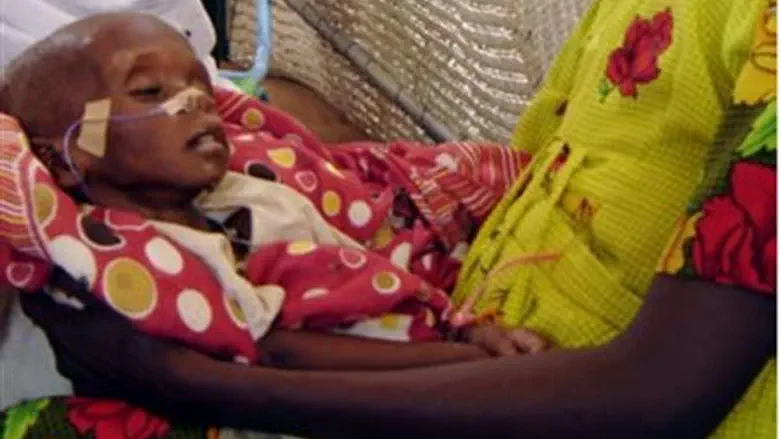
A senior Sudanese official has laid the blame for problems in his country at the feet of the “pro-Israel lobby.” Supporters of the Jewish state are to blame for United States President Barack Obama's about-face regarding independence for southern Sudan, said Sudanese Vice President Ali Osman Taha.
Obama has moved from supporting Sudanese unity to backing a referendum that may see the southern part of the country decide to seek independence.
On Thursday, Obama said the referendum “is one of our highest priorities.” He warned that millions of people could die if war were to break out in Sudan again. Two million people were killed in previous battles between the northern and southern parts of the country.
Preventing war will serve Western countries as well as Sudan, Obama said. War would destabilize the region, which could strengthen terrorist force, he explained.
Northern Sudan is predominantly Muslim and is the seat of political power in the country, while the population of the south is largely Christian and animist. In addition to conflict between Muslims and non-Muslims, Sudan has been plagued by fighting in the Darfur region, where Arab Muslim militias have slaughtered hundreds of thousands of black Muslim villagers.
Taha said Obama's latest statements indicate Zionist interference. “The United States was initially saying it wants Sudan to remain united, then it moved a little to say that what it wants whatever the southerners accept, and today it raises its voice saying that separation will be inevitable," he said. “This shows that there are US pressure lobbies linked to Israel talking and pushing things in this direction."
Similar statements were attributed by the Sudan Tribune to presidential adviser Mustafa Osman Ismail.
The vote in southern Sudan is scheduled to take place on January 9. Taha said that if the south votes to secede, northern Sudan will not use military force to impose unity. However, he warned that fighting could break out in the Abyei region, which is partially in the north and partially in the south.